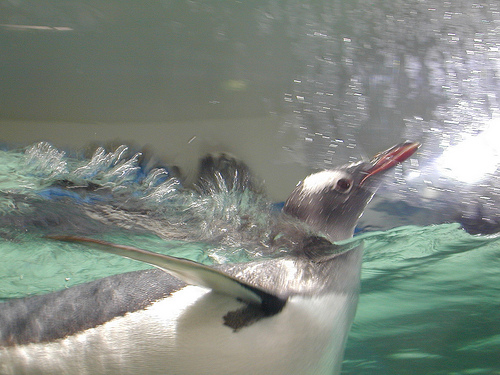It’s time for our annual orbit around the future of long form. In last year’s post, The Future of Long Form: An Odyssey we visited seven virtual space stations in the new media galaxy. This year we’ll fly past each one in a rocket travelling at 475 kilometres a minute. We’re cleared for launch and counting down; five, four, three, two….
Station 1: Traditional Print
If you look through the porthole to the right of the rocket you’ll see this, the oldest station in the long form galaxy – coming out of the Guttenberg inspired revolution: publishing your words in print.
Despite its so-called retro look, I still love to see my byline printed at this station. In fact, I think I have more faith in traditional print than I did before I started using my e-reader. (I don’t like e-reading as much as print-reading).
Yet, despite my enthusiasm, the print world continues to be challenged by the disruption new media has brought. I’m not aware of any newcoming Australian or international print-based publications of long form (please enlighten me if you know of any). However, I am aware of print publications moving to entirely digital delivery.
Station 2: Traditional Online
This station is surrounded by a constellation of newly documented stars marking the increase in opportunities to pitch your long form work to online publications. This year saw the introduction of high-profile sites The Big Round Table (US) and Matter (UK). Both were seeded by crowd sourcing campaigns and both are using paywalls (Matter has since sold to Medium). The Big Round Table is donation based (which means that you may not be paid if you are published or you may be paid a lot). Matter uses a subscription/pay-per-read model.
Locally, Tincture Journal has appeared as a venue for long form non-fiction. In contrast to The Big Round Table and Matter (which publish individual articles), Tincture provides an editorial package. It sells in E-pub and Kindle formats. The package includes fiction, creative non-fiction and poetry. Tincture will consider up to 15,000 words of creative non-fiction (and recently tweeted that they find it difficult to source non-fiction work – so pitch!)
There are also opportunities to submit your long form work for e-publishing by some of the leading publishing houses. (Certainly before their merger both Penguin and Random House were keen on more long form, no doubt Penguin Random House will be too).
Station 3: Enterprise Journalism / Community Funded Reporting / Crowd sourcing
Slightly behind the rocket here you may catch a few falling stars. These are the international and local initiatives that provided platforms to crowd fund articles. Our local version youcommnews.com has disappeared offline altogether (perhaps one day it will reappear) and the US version Spot.us might sadly be fading (at time of publishing, the most recent funding requests date back to 2012).
Some journalists (not just writers) have succeeded in using generic crowd sourcing sites to fund their stories (like pozible.com, kickstarter.com and indiegogo.com). However this model is yet to be proven for long form writing.
While the community funded reporting model may be dimming, there is a little sparkle when it comes to crowd sourcing long form publishing houses. Both The Big Round Table and Matter were seeded in this way.
Station 4: Publishers Funded by Philanthropists
Thanks to the generosity of Wotif founder Graeme Wood, Australia still has The Global Mail (funded by a grant from Wood) and now our own masthead of the UK’s Guardian (an investment rather than a donation). In the past 12 months Wood has also donated $1.5 million to the International Consortium of Investigative Journalists. He’s certainly committed to the idea of ‘Philanthrojournalism’.
Shimmering brightly in this cluster of stars is the long-standing Centre for Public Integrity – more substantive proof of the viability of this model.*
Station 5: Writers funding philanthropy
There are initiatives such as Write for Life that are compiling articles into books which are then sold to raise funds for charity. It’s a nice idea but no doubt suffers from the same challenges all small publishing does – namely finding enough readers.
Incidentally, in the past year I’ve tried to raise funds by selling my long form article online. I got a lot of exposure, but didn’t raise a lot money. You can read all about that in my post Goodwill Hunting.
Station 6: Writing for free / Self Publishing
As always, if you don’t want or need to get paid for your work, you can publish your long form article on your own site or blog.
Be aware however (to reformat the old adage) if you publish it, they may not necessarily come. Readers can be as elusive as those stars you only see from the corner of your eye.
Station 7: Entrepreneurial Journalism / Self Publishing
It’s vast – but despite this, station seven is the most crowded in our orbit. Literary-astronauts are lured by the ease of access and the promise of 70% royalties. But setting a long form piece into the new media galaxy alone is not enough. It has to be heavily marketed, and even then may not find readers. Most of the work published from this station just drifts aimlessly into space.
That’s our 2013 rocket trip on the future of long form in the new media galaxy concluded! I’ll be most interested to see what the journey will show in another year’s time. Keep checking the Venues and Resources page of this blog to learn of new publishing opportunities.
* If you’re interested in a good overview of journalism funded by philanthropy read this recent post by Matthew Knott on Crikey.



